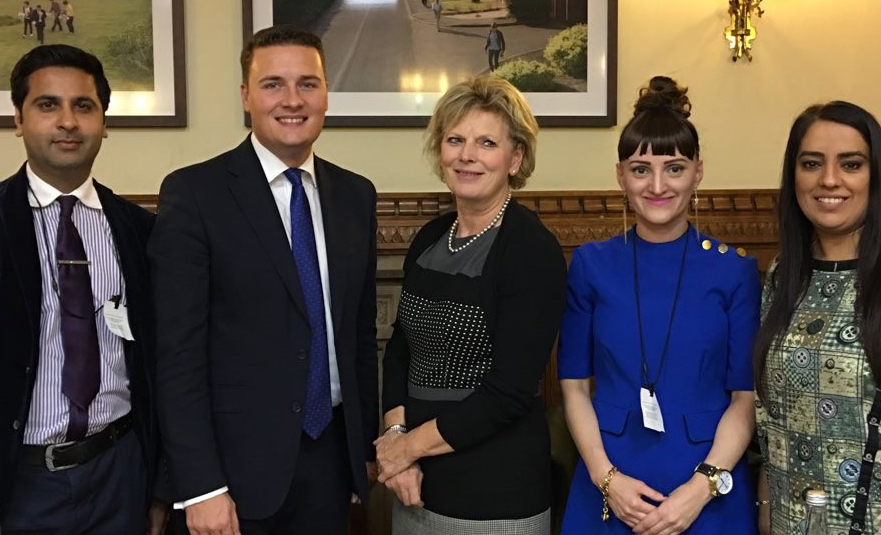Connecting academia and policy
A personal account of sharing my academic research relating to hate crime with policy makers by Dr Irene Zempi
By Richard Pickford | Published on 11 June 2021
Categories: Nottingham Civic Exchange; Research; School of Social Sciences;

Academic research can play a vital role in policy making. Providing evidence (whether oral and/or in writing) to policy makers is a great way for academic researchers to inform and/or influence the policy making process and the political agenda, and thus benefit wider society. This is line with the UK Research Excellence Framework (REF), an assessment of the quality of research outputs in UK higher education institutions, and their impact beyond academia and the research environment. As a researcher specialising on hate crime, my motivation for engaging with, and influencing public policy has been to represent the voices of victims of hate crime in government policy, and make a ‘real difference’ in the lives of actual and potential victims of hate crime through knowledge exchange with policy makers. In particular, in light of my research expertise on hate crime I have provided both written and oral evidence to parliament as well as other government-commissioned groups on issues related to hate crime. Specifically:
- In May 2021, I provided oral evidence to Policy Lab, which is commissioned by the Independent Review of Prevent (the Government’s strategy for stopping people becoming terrorists or supporting terrorism) to engage with academics who have expertise in counter-terrorism, extremism and safeguarding;
- I provided oral evidence to the Law Commission for the “Review of Hate Crime Legislation in England and Wales” in March 2019, November 2019 and also in December 2020;
- In January 2019, I provided written evidence to the Home Affairs Committee for the “Islamophobia Inquiry”;
- In July 2018, I provided written and oral evidence to the All Party Parliamentary Group (APPG) on British Muslims for the “Government’s call to define Islamophobia”;
- I provided written and oral evidence to the All Party Parliamentary Group (APPG) on British Muslims during ‘Hate Crime Awareness Week’ in October 2015, October 2016, October 2017 and also in October 2018.
Using academic research for policy development is crucial for evidence-informed policy decision-making. Correspondingly, influencing public policy has been a key part of my role as an academic researcher working on hate crime. Specifically, my key motivation to engaging with policy makers has been to make a ‘real difference’ for the lives of hate crime victims. Indeed, providing evidence to parliamentary groups as well as other government-commissioned groups has been a very rewarding experience as it has allowed me to inform policy making using knowledge exchange. I have also learnt from my engagement with policy makers, particularly in terms of helping to see their perspective and giving me new questions to ask. Knowledge exchange with policy makers is particularly important in the context of hate crime, where the experiences of victims of hate crime are under-researched and under-reported, and thus remain ‘hidden’. My engagement with policy makers demonstrates how academic researchers can voice the experiences of marginalised and oppressed groups in society, thus addressing a key barrier to current evidence-informed decision-making processes.
Evidence-based social science should be at the heart of policy making. The metaphor of the 'ivory tower' is often used when describing the academic environment. Engagement between researchers and policy makers shows the real value of connecting academia and policy. In order to maximise the impact of our work, it is really important to share our research findings with politicians, civil servants as well as other individuals and organisations (local, national, regional and global) who can influence policy, and thus benefit society in the long term. This becomes even more important in the context of the global BLM movement, the disproportionate impact of Covid-19 on Black, Asian and Ethnic Minority communities, the sharp rise in Covid-19 related hate crimes against Chinese and South East Asian communities, as well as wider challenges of Covid-19 including the ‘new world’ that we are entering post the pandemic.
To find out more about engaging with policy makers please contact Nottingham Civic Exchange our School based think tank. They monitor and share policy opportunities for NTU researches which is where my engagement with the Policy Lab team developed from. NCE can support you with advice and guidance on how and where to engage with policy makers and external partners. Contact Rich to find out more.
Nottingham Civic Exchange
Nottingham Civic Exchange has been established by Nottingham Trent University to maximise research, policy and practical impact by bringing together university expertise with partners seeking to address the needs of communities. Nottingham Civic Exchange acts as a resource to look at social and economic issues in new ways. This means facilitating debate, acting as a bridge between research and policy debates, and developing practical projects at a local, city and regional level.
Visit our website - www.ntu.ac.uk/nce Contact us - notts.civicex@ntu.ac.uk Follow us - @NottsCivicEx